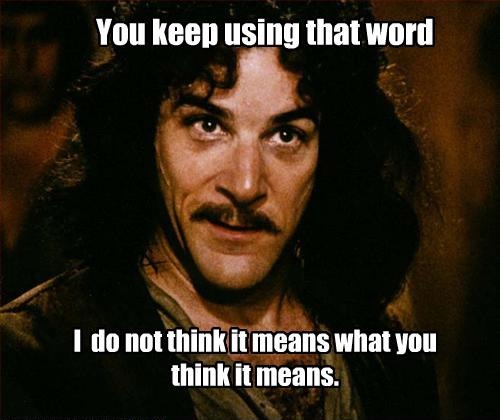For those who think fasting is burning fat.

Mokey41
Posts: 5,769 Member
http://www.theglobeandmail.com/life/health-and-fitness/health/keen-to-try-a-fasting-diet-not-so-fast/article8461083/
""The catch
There’s one problem with the rationale behind fasting diets, according to David Lau, an obesity researcher, professor and chair of the diabetes and endocrine research group at the University of Calgary. When glycogen stores in the liver are depleted, the body doesn’t burn fat: It breaks down protein. Lau said starvation will only burn fat as fuel after about a week of starvation.
“Muscle protein breakdown occurs in the first 24 hours of starvation,” he said. “Muscle protein breakdown [is] not healthy.”
His concern is that many people are fasting without realizing they may be losing crucial muscle mass. The danger is that as protein in the body breaks down, it could lead to other unwanted side effects, such as altered immunity. In order to fight infections, the body needs to produce antibodies, a type of protein. But when the body is breaking down protein for fuel, it may not send the right signal to make antibodies, Lau said.
Britain’s National Health Service recently issued a warning to consumers about fasting diets, saying they simply haven’t been studied enough for anyone to conclude whether they are safe or effective. Although some studies have shown fasting diets appear to work, they typically involve a small number of patients or were conducted over a short time frame, meaning the results likely aren’t conclusive. People on fasting diets have also reported sleeping problems, irritability, bad breath, anxiety and fatigue during the day, according to the NHS."
""The catch
There’s one problem with the rationale behind fasting diets, according to David Lau, an obesity researcher, professor and chair of the diabetes and endocrine research group at the University of Calgary. When glycogen stores in the liver are depleted, the body doesn’t burn fat: It breaks down protein. Lau said starvation will only burn fat as fuel after about a week of starvation.
“Muscle protein breakdown occurs in the first 24 hours of starvation,” he said. “Muscle protein breakdown [is] not healthy.”
His concern is that many people are fasting without realizing they may be losing crucial muscle mass. The danger is that as protein in the body breaks down, it could lead to other unwanted side effects, such as altered immunity. In order to fight infections, the body needs to produce antibodies, a type of protein. But when the body is breaking down protein for fuel, it may not send the right signal to make antibodies, Lau said.
Britain’s National Health Service recently issued a warning to consumers about fasting diets, saying they simply haven’t been studied enough for anyone to conclude whether they are safe or effective. Although some studies have shown fasting diets appear to work, they typically involve a small number of patients or were conducted over a short time frame, meaning the results likely aren’t conclusive. People on fasting diets have also reported sleeping problems, irritability, bad breath, anxiety and fatigue during the day, according to the NHS."
0
Replies
-
Fasting does burn fat and study after study supports that. It's the way our bodies are designed -- we don't build muscle to be broken down later for energy, we store fat to be used as energy. Also, going without food for a few days does not equal starvation and our bodies response to the two are different.0
-
Fasting does burn fat and study after study supports that. It's the way our bodies are designed -- we don't build muscle to be broken down later for energy, we store fat to be used as energy. Also, going without food for a few days does not equal starvation and our bodies response to the two are different.
^^^^ This, exactly0 -
I always thought that the body went for what is most easily converted to energy first- protein before fat.0
-
I always thought that the body went for what is most easily converted to energy first- protein before fat.
Truth.0 -
I always thought that the body went for what is most easily converted to energy first- protein before fat.
So does the researcher in the article but he made use of the word starvation which, as usual, has thrown MFP'ers for a loop.0 -
“Muscle protein breakdown occurs in the first 24 hours of starvation,”
That's not the same as the first 24 hrs of fasting. Fasting is not putting your body into starvation.0 -
“Muscle protein breakdown occurs in the first 24 hours of starvation,”
That's not the same as the first 24 hrs of fasting. Fasting is not putting your body into starvation.
This.0 -
"Lau said starvation will only burn fat as fuel after about a week of starvation."
I believe he's using starvation in place of not eating, not literally starving. Whatever you want to call it, not eating, starving, fasting, it's all the same. Don't get hung up on the starvation mode theory.0 -
He's using the term in a clinical sense. From wiki:
ie. not eating.Starvation is a severe deficiency in caloric energy, nutrient and vitamin intake. It is the most extreme form of malnutrition.0 -
"Starvation"
 0
0 -
I feel like this is something that will be fought about forever. People just go back and forth on the issue. I deleted my old account because when I did a fast people would post negative things. Just because you read ONE article doesn't mean you are making a valid point. I could go and research a bunch from both sides and you'd end up with the same answer. There really isn't one. People choose to do what they believe works and you posting this doesn't make anyone change their minds. Not trying to be rude, but that's how it is... People are going to fast and have results, some people won't.0
-
Fasting does burn fat and study after study supports that. It's the way our bodies are designed -- we don't build muscle to be broken down later for energy, we store fat to be used as energy. Also, going without food for a few days does not equal starvation and our bodies response to the two are different.
Agreed. Studies of mule deer show that during calorie deprivation over a period of 120 days, the animals do lose both fat AND protein. The rate of tissue lost was constant for each - in other words, you are not tapping fat stores BEFORE tapping protein stores - you are losing both at every stage of the deprivation process. In this study, the deer lost between .39 and .46 pounds of protein for every pound of fat they lost and this was pretty constant, regardless of whether they were mildly or severely deprived.
If they were slightly calorie deprived, the deer lost 38% body fat and 16% protein tissue.
If they were moderately calorie deprived, they lost 46% body fat and 18% protein.
If they were severely calorie deprived, they lost 67% body fat and 31% protein (a potentially fatal amount of protein loss)
Source: http://www.jstor.org/discover/10.2307/3801849?uid=3739560&uid=2&uid=4&uid=3739256&sid=21101800034127
Okay, deer are not people, but we both are mammals, and I think this study underscores two points to keep in mind. Any program aimed at losing body fat should pay attention to strength training and protein intake to minimize the muscle being lost.0
This discussion has been closed.
Categories
- All Categories
- 1.4M Health, Wellness and Goals
- 398.2K Introduce Yourself
- 44.7K Getting Started
- 261K Health and Weight Loss
- 176.4K Food and Nutrition
- 47.7K Recipes
- 233K Fitness and Exercise
- 463 Sleep, Mindfulness and Overall Wellness
- 6.5K Goal: Maintaining Weight
- 8.7K Goal: Gaining Weight and Body Building
- 153.5K Motivation and Support
- 8.4K Challenges
- 1.4K Debate Club
- 96.5K Chit-Chat
- 2.6K Fun and Games
- 4.8K MyFitnessPal Information
- 13 News and Announcements
- 21 MyFitnessPal Academy
- 1.6K Feature Suggestions and Ideas
- 3.2K MyFitnessPal Tech Support Questions







